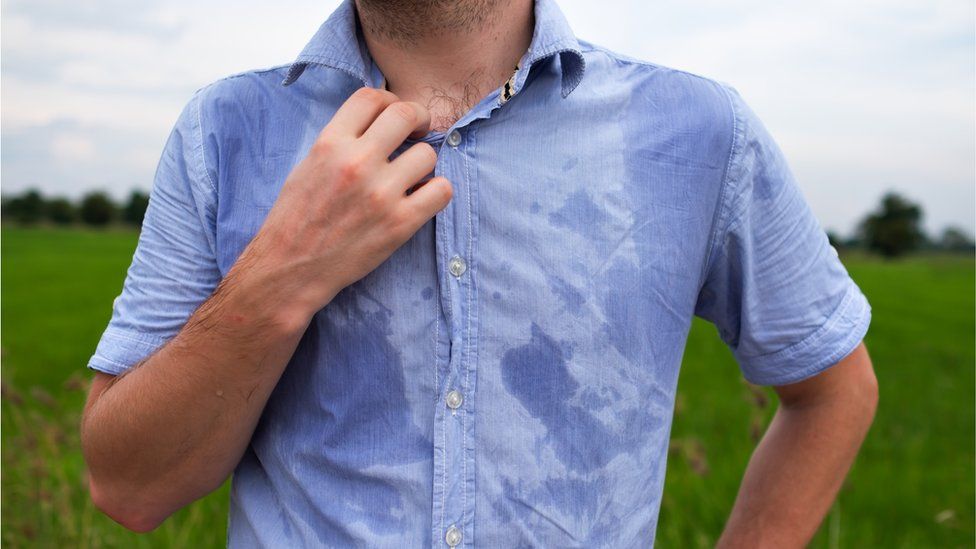Heatwaves and the human body
What impact do high temperatures have on our bodies? …

By James Gallagher
Health and science correspondent, BBC News
 image copyrightGetty Images
image copyrightGetty ImagesWhat impact does heat have on the body?
Our body will strive to keep a core temperature of about 37.5C whether we’re in a snowstorm or a heatwave.
It is the temperature our bodies have evolved to work at.
But as the mercury rises, the body has to work harder to keep its core temperature down.
So, it opens more blood vessels near the skin to lose heat to our surroundings and starts sweating.
As the sweat evaporates, it dramatically increases the heat lost from the skin.
When does this cause a problem?
This might sound simple but it puts a strain on the body – and the higher temperatures rise, the greater the strain.
Those opened up blood vessels lead to a lower blood pressure and make the heart work harder and pump faster to push the blood around the body.
This can cause mild symptoms such as an itchy heat rash or swollen feet as blood vessels become leaky.
But if the pressure drops too low, then insufficient blood will reach the organs that need it and the risk of heart attacks rises.
At the same time, sweating leads to the loss of fluids and salt and, crucially, the balance between them in the body changes.
And this combined with the lowered blood pressure can lead to heat exhaustion, the symptoms of which include: • dizziness • fainting • confusion • nausea • muscle cramps • headaches • heavy sweating • tiredness
 image copyrightGetty Images
image copyrightGetty ImagesWhat should I do if I see someone with heat exhaustion?
If they can be cooled down within half an hour, then heat exhaustion is not normally serious.
The NHS advice is to:
- Move them to a cool place.
- Get them to lie down and raise their feet slightly
- Get them to drink plenty of water – sports or rehydration drinks are also OK
- Cool their skin – spray or sponge them with cool water and fan them. Cold packs around the armpits or neck are good too
However, if they do not recover within 30 minutes, then what follows is heat stroke.
It is a medical emergency and you should call 999.
People with heat stroke may stop sweating even though they are too hot, their temperature could have passed 40C and they may have seizures or lose consciousness.
 image copyrightGetty Images
image copyrightGetty ImagesWho is more at risk?
Healthy people should be able to cope with a heatwave by using common sense – but some are at greater risk.
Old age or some long-term conditions, such as heart disease, can leave people less able to cope with the strain heat puts on the body.
Diabetes, both types 1 and 2, can make the body lose water more quickly and some complications of the diseases can alter blood vessels and the ability to sweat.
It is also crucial to be able to recognise you are too hot and then be able to do something about it.
This will be something most of us take for granted. However, children and babies, those who are less mobile may be more vulnerable and brain diseases such as dementia can leave people unaware of the heat or unable to do anything about it.
People who are homeless will also be more exposed to the power of the sun. And those living in top-floor flats will also face higher temperatures.
Do some drugs increase the risk?
Yes – but people should keep taking their medication as normal and need to make more effort to stay cool and hydrated.
Diuretics increase the amount of water the body expels. They are taken widely, including for heart failure. In high temperatures, they increase the dangers of dehydration and imbalances in key minerals in the body.
Antihypertensives – which lower blood pressure – can combine with the blood vessels that are dilating to cope with the heat and cause dangerous drops in blood pressure.
Some epilepsy and anti-Parkinson’s drugs can block sweating and make it harder for the body to cool itself.
And other drugs such as lithium or statins can become more concentrated and problematic in the blood if there is too much fluid loss.
Does heat kill?
There are about 2,000 deaths caused by high temperatures in England every year.
Most of these will be heart attacks and strokes caused by the strain of trying to keep body temperatures stable.
The higher death rate starts to kick in once the thermometer passes 25-26C.
However, the evidence suggests the deaths tend to be caused by higher temperatures in spring or early summer rather than “peak summer”.
This could be because we start to change our day-to-day behaviour as summer progresses and we get more used to dealing with the heat.
The evidence from previous heatwaves is the increase in deaths happens very quickly – within the first 24 hours of the heatwave.
This is in contrast with cold snaps, which can also be deadly but take longer to have an impact.
A 2010 study into the impact of heatwaves on deaths in nine European cities and found increases of anywhere from 7.6% (in Munich) to 33.6% (in Milan).
Europe’s 2003 heatwave caused about 70,000 additional deaths, according to estimates.
Night-time v daytime temperatures
The highest temperatures will obviously be during the day, when the sun is beating down on us, but night-time temperature is also crucial.
The reason is the body needs a break.
If the strain of keeping the core body temperature under control continues through day and night, then it increases the risk of health problems.
So what do I do about the heat?
The advice is pretty simple and obvious – stay cool and hydrated.
One way of thinking about it is to act like you would on a hot, sunny holiday – you don’t stop having fun but you do change your behaviour. Do you really need to do that 10k run at noon or can you wait until the evening?
So, make sure you’re drinking enough water or milk. Tea and coffee are also fine. The one to watch out for is excessive alcohol as it can increase the risk of dehydration.
And try to keep cool – if it’s hotter outside than inside your home, then you might be better off keeping the windows closed and the curtains drawn. You might find it more pleasant to head for a park, with some breeze and shade, than stay at home.
Follow James on Twitter.

